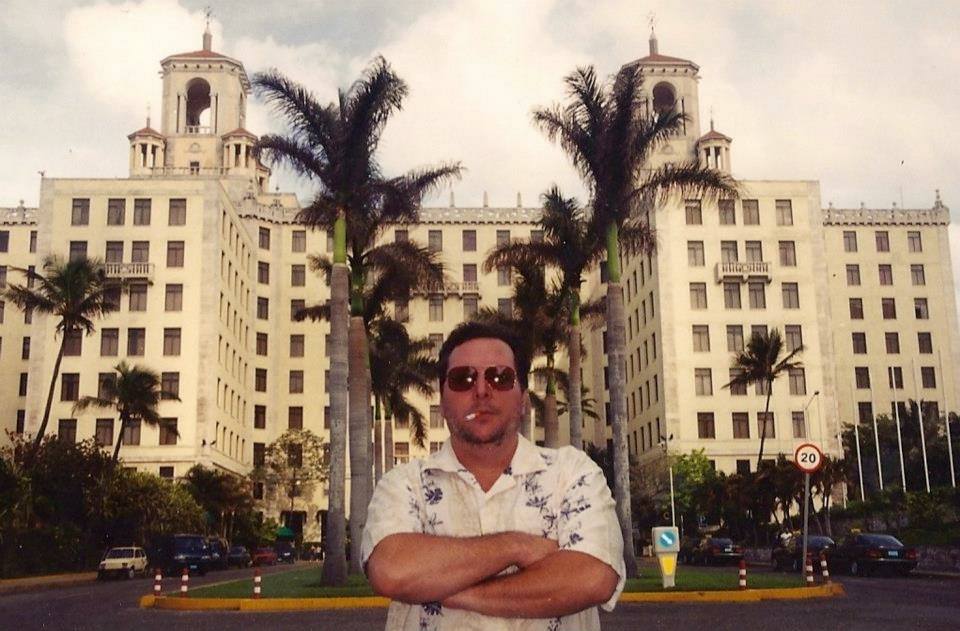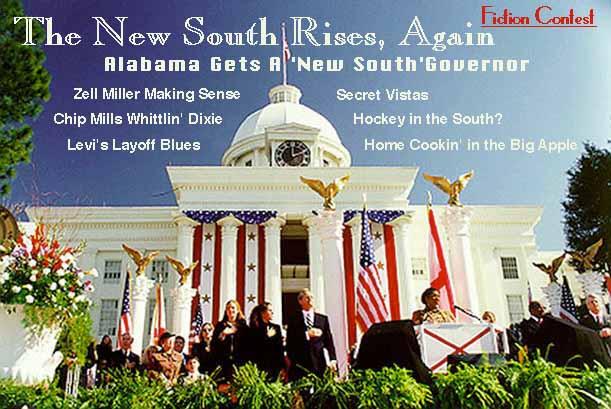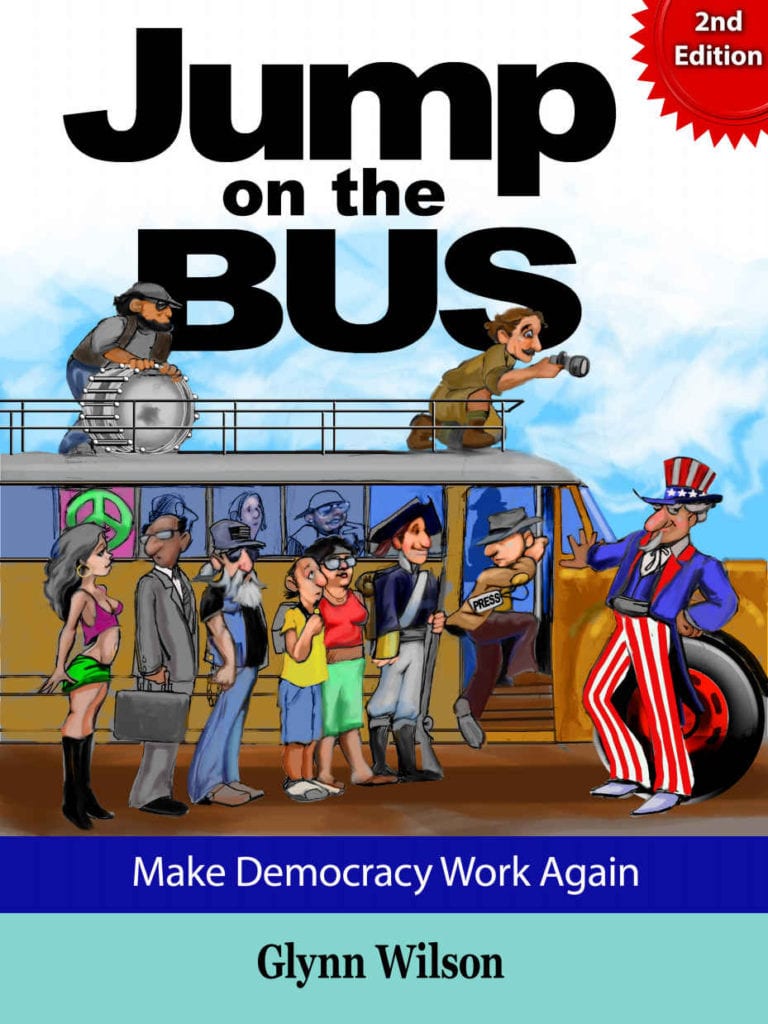The Big Picture –
By Glynn Wilson –
WASHINGTON, D.C. — One of the themes that emerges from this life analysis is that kids need heroes to inspire and emulate. That’s why it’s so important for young women to have role models, along with African Americans and other minorities in America.
All I can do is write about my own experiences. One of my early heroes in journalism was the syndicated columnist Jack Anderson. Everybody who was anybody in American journalism in the 1970s and ’80s was talking about Bob Woodward and Carl Bernstein of The Washington Post, and Nixon’s “Watergate” scandal.
But I got to meet Anderson at Jefferson State Community College in 1981. I had grown so passionate about journalism that I recruited other students in the communications program and started a campus newspaper. The college administration was so worried about bad publicity it took over before we could publish the first issue.
That was my first setback in journalism. It would not be the last.
I write more about it in my memoir, but don’t want to spend time and space dwelling on it here.
Jump On The Bus: Make Democracy Work Again
I was offered a scholarship to Troy State University to study journalism, but I chose the University of Alabama instead. I recently wrote about that experience here.
After finishing my senior year at Alabama in the spring of 1983, I was having the time of my life hanging around on the Southside of Birmingham. Engaged at the time, I polished my resume and sent it out to newspapers around the state. The Birmingham News and Post-Herald said they required five years of experience, so I could not get hired right out of college by my home town papers. An editor at The Baldwin Times in Bay Minette answered my letter, and after an interview, I got the job covering local politics and the courthouse in the county seat of Baldwin County, famous for the white sand beaches in Gulf Shores.
It was great experience for a year, and everything went very well, until my fiancé’s step father died in Birmingham. A daily newspaper editor in North Alabama kept calling and trying to recruit me, so I took the higher paying job closer to Birmingham in Decatur. Things would not go as well there, although I met great friends for life. I ended up having to sue the owner of the paper in federal court. The whole story is told in my memoir, and the Columbia Journalism Review ended up writing about it. We did not have a news writing union in the South, so corrupt newspaper editors and publishers exploited our labor for cheap.
So much for my new dream of writing for daily newspapers for a living. At least at that time.
But I did not give up on my dream to write. I opened my own business on Birmingham’s Southside at the age of 26, a book store and newsstand with a coffee bar called NewsBreak, and went to work figuring out the free-lance writing business. I experienced some successes and some setbacks, but my attitude was to move “ever forward.” After three years in the retail business and writing for some magazines, I was offered a chance to get back into the newspaper business full time.
In the spring of 1989, the Exxon Valdez ran aground in Prince William Sound in Alaska and spilled millions of gallons of oil into the water. It was the worst environmental disaster ever at that time, and the public interest in it caused every news organization in the country to hire someone to cover the environment as a speciality beat. I had some related clips and an interest in the field, so I took the chance, closed my business with little fanfare, and moved back to the beach in Gulf Shores to cover the environment for a chain of six newspapers on the Gulf Coast.
Of course I ended up covering local and state politics as well, and even wrote about national issues in a weekly column called “The Beach Beat.” I thought it was a cool name, and the cool people along the coast found out that it was a cool thing. I know because I would often catch them reading it in law offices or at the bar in the Pink Pony Pub or the Flora-Bama Lounge.
The circulation of the newspapers doubled in a few months, and then tripled. We got letters to the editor from Snowbirds in Michigan saying our paper was better than The Detroit Free Press, which at that time was saying something.
The successes started mounting up almost immediately, and over the next three years, I would become a much better reporter and writer. Plus I cruised up and down the beach in a 1979 Fiat Spider, midnight blue sparkle with a canvas convertible top. Thanks to the strong coverage in the newspapers, the public won victory after victory for the environment, and I won some awards.
But then a big, bad story came along and it pissed off some powerful people, so I found myself moving on once again. It’s all in the book.
This is a recent update on that story and technology.
Havana Syndrome Clearly Caused by Directed Energy Weapon

That’s me in front of the Hotel Nacional de Cuba in Havana, in Dec. 2000. It is one of the locations where the syndrome has reportedly been experienced. Symptoms include hearing a sudden loud noise, pain in one or both ears, feeling of pressure or vibrations in the head, tinnitus, visual problems, vertigo, nausea, cognitive difficulties, sleep deprivation/insomnia, fatigue and dizziness: Photo by Spider Martin
Good Timing, Grad School
The good news is the timing was really good. I went back to grad school just when access to the internet was starting to get interesting. I was paid to teach classes, and managed to produce a masters thesis that was accepted by a committee of my peers. That launched a teaching career that would last nearly a decade.
But I never lost interest in free-lance writing, so I continued even while working as a college professor. I put up my first web site while teaching at Georgia College in 1995-96, and had the summer off with pay to enjoy the 1996 Summer Olympics in Atlanta.
Another time of my life. Also covered in the book.
Then while teaching at the University of Tennessee in the late 1990s, working toward a Ph.D., I once again found myself putting together a team of students to create a new publication, this time an online magazine, one of the first in the country. Inspired by Southern Magazine out of the Arkansas writers project in the late 1980s, which was put out of business when Time, Inc. bought it out along with Southern Living in 1989, you can still see one of the most interesting student projects in the history of American college journalism. We may have found a way to fund it and take it public and keep it alive, if the dot com bubble had not burst in the year 2000: The Southerner.

The first cover of The Southerner magazine online, 1999: Spider Martin
It was just another setback in a long line of them. Not to be deterred, I saw a job opening for a tenure track teaching gig in the Chronicle of Higher Education at Loyola University, New Orleans, and tossed my hat into the ring, not expecting to even get a call back. But I must have been one of the most interesting and qualified applicants.
I did have a curriculum vitae that printed off the web as 13 pages long. In one 12-month period, I delivered a dozen conference papers. I think the committee in New Orleans also liked the magazine, and saw it moving to Loyola, so they flew me down for an interview.
I must have nailed it. They hired me A.B.D., or all but dissertation, so of course I jumped on the bus, so to speak, and made the move to the Big Easy.
They say “les bons temps rouler,” or “let the good times roll.” I felt like Huckleberry Finn, making it down the Mighty Mississippi River to the sea.
Little did I know, but this would be in some ways the pinnacle of my career, the highest and most successful run of my life, at least in the traditional news publishing business.

___
More in Part 4: On Unfulfilled Hopes, Shattered Dreams and the Big Easy
___
If you support truth in reporting with no paywall, and fearless writing with no popup ads or sponsored content, consider making a contribution today with GoFundMe or Patreon or PayPal. We just tell it like it is, no sensational clickbait or pretentious BS.















Always love your stuff-talk about women needing role models-how about that BARBIE who conservative Republicans and so-called Christians are bashing as some type of Communist inspired anti-“Christian” plot… Saw the movie, observed NONE of that except the fact that women should be respected and treated equally! Now that’s subversive and something the Christians and Muslims have in common!